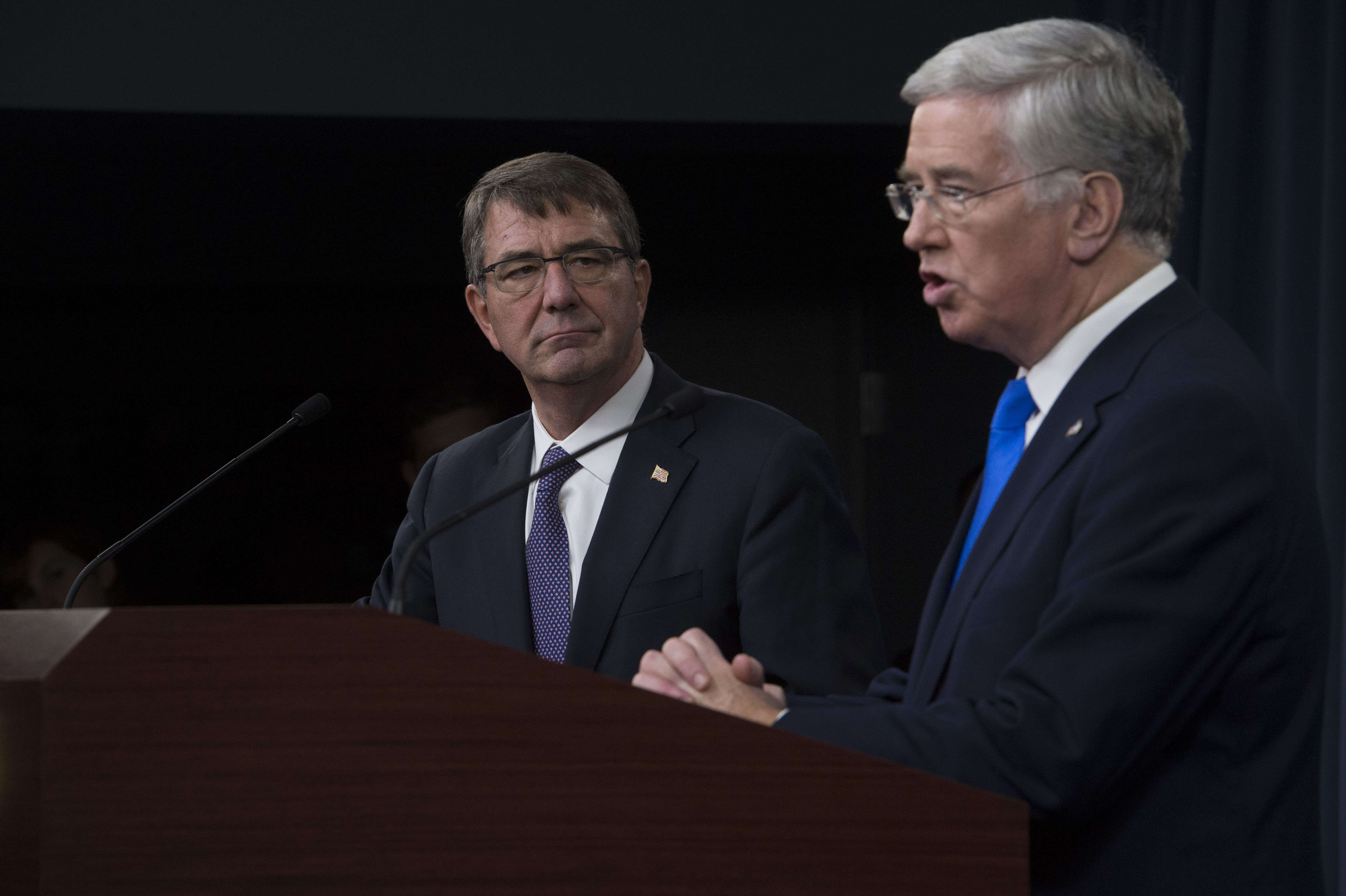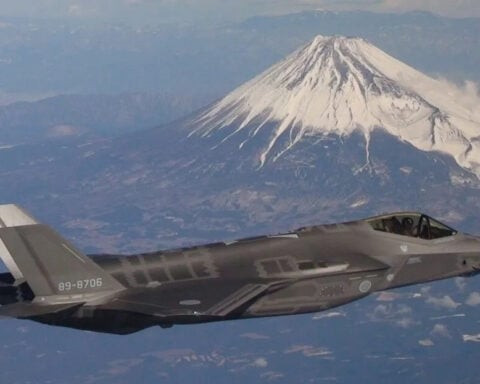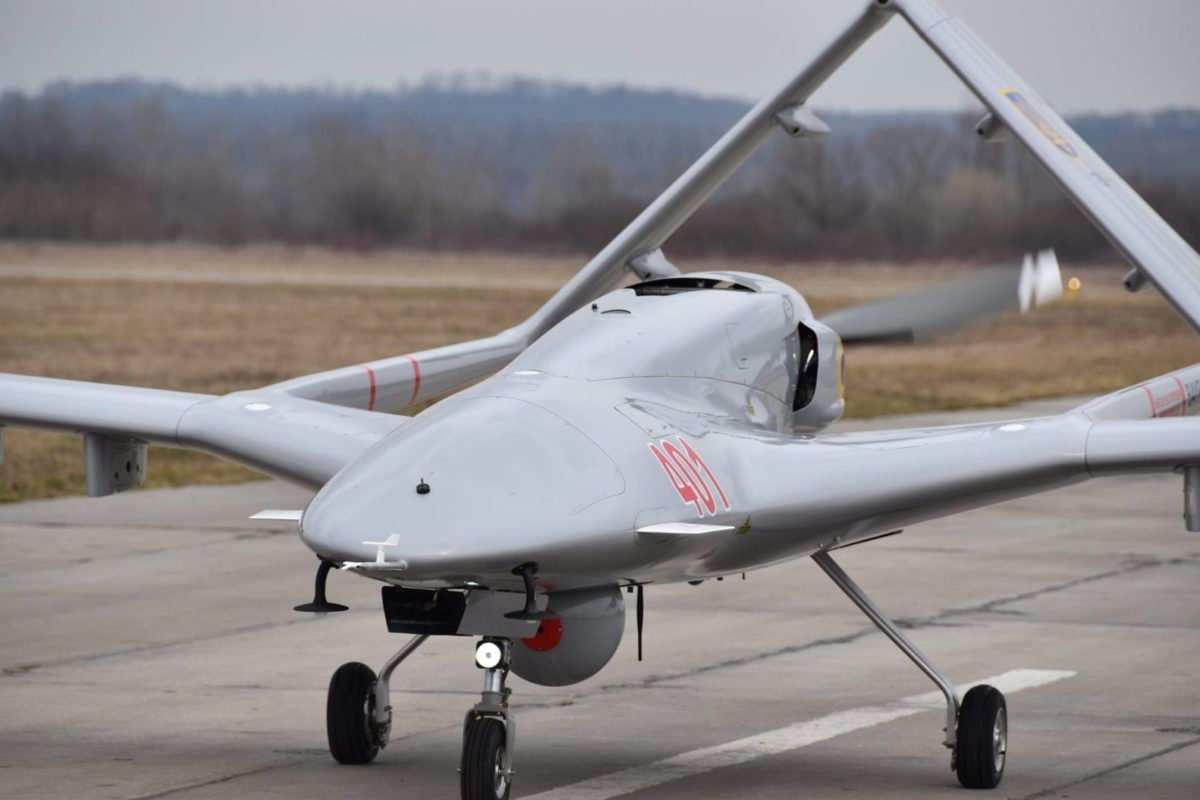
Britain’s Minister of Defense detailed steps his government is taking to show it is “bringing the full force of the Royal Air Force to bear” on the Islamic State and that it is a nation planning to invest more than $265 billion on new military hardware over the next decade to remain a world power.
Speaking Friday at the Atlantic Council, a Washington, D.C., think-tank, and later at a Pentagon press briefing, Michael Fallon said the world “is threatened by a new evil, Islamic fascism” that must be countered with force and also with the power of ideas, such as those shared by the United States and the United Kingdom on “freedom of religion, freedom of tolerance for all.”
But, he made it clear, especially at the Pentagon, that the U.K. has no intention of sending large numbers of ground forces to fight the Islamic State in Iraq or Syria. Defense Secretary Ashton Carter told the Senate Armed services Committee again last week that is the position the United States has taken.
Iraqi “Prime Minister [Haider al-] Abadi made it very clear to me when I was last in Baghdad that they do not want to see British troops on the ground there. And with great respect, they don’t want to see American troops there. They realize that security has to be achieved in areas that have been liberated from ISIL-Daesh [acronyms for the Islamic State] by home-grown forces that can enjoy the support and confidence of the Sunni areas,” Fallon said at the Pentagon.
“And that can’t be done by Western boots on the ground. So far as other countries are concerned, in countries in Libya, yes, we’ve been working for a political settlement there. And if we can achieve a political settlement, which, as you know, is being negotiated at the moment, and there’s an international mission to help provide training and support for it, of course, we would be part of that. We’re already providing training and assistance to the government of Nigeria in its own campaign against the ISIL-Daesh franchise Boko Haram in northeast Nigeria.”
Fallon called Parliament’s recent vote to allow U.K. air operations against the Islamic State in Syria a reversal of “an artificial decision” made in 2013. At that time, Parliament—where the Conservative Party shared power with the Liberals—rejected Prime Minister David Cameron’s call for air strikes in Syria to stop the regime of Bashar al-Assad from attacking civilians.
Before the vote in Parliament, the military situation in Syria also changed with Russian involvement. Russia has launched air strikes and cruise missiles from submarines and surface vessels in support of the Assad regime. Moscow also has sent several thousand support forces to air bases and naval installations it maintains in Syria.
the Pentagon Fallon said, “If Russia wants to help in Syria where it has influence, it ought to stop propping up the Assad regime, help us bring this civil war to an end, stop bombing the opposition groups that have been opposed to Assad and start to play a more constructive role in the process of moving Syria to a more pluralist future.”
He added air strikes with precision weapons could “slowly choke off Raqqa,” the Islamic State’s proclaimed capital, and also be used to reclaim Mosul, Iraq’s second largest city.
Because the Islamic State is “not the only danger we face”—citing “an expansionist Russia,” China’s actions in waters off its shores, North Korea’s continuing nuclear weapons program and “the growing threat from cyber”—he said the U.K. “is the only major country [in Europe] willing to spend 2 percent [of its gross domestic product] on defense.”
Fallon added that the U.K. has been urging its partners in the European Union “to up their game” in defense spending.
Soon, from its stepped-up defense spending, he said the U.K. will have a 50,000-man “potent expeditionary force,” including more than a division of ground troops, a maritime task force of new frigates and destroyers and two aircraft carriers in the 2020s and an air component.
“Our new joint force will let us do more independently and more with you [the United States].” Fallon said at the Atlantic Council in the near future the United States and U.K. “will be seeing our F-35s flying from your decks . . . [and] seeing your F-35s flying from our decks.”
Like the Pentagon’s recent moves to work more closely with Silicon Valley, Fallon said his ministry is doing the same with Great Britain’s tech industry. He said the ministry will be launching an innovation cell next year and is prepared to invest $1.5 billion in research on cyber, robotics, etc.
“When our two countries work together, we are more than the sum of our parts,” he said at the council in making a point for more contracts with firms in the United Kingdom on large projects such as the Ohio-class replacement and F-35 programs.
Fallon said that the Cameron government still plans to cut its defense civilian work force in accordance with its earlier steps to restore the economy. “We still have a deficit in our public finances,” but the government has decided “to decrease welfare spending and increase defense.”





